最近几天市场春天又回来了,投资者们摩拳擦掌,嗅到了新一轮财富密码的味道。
BlockBeats 消息,4 月 25 日,Web3 保密协议 Inco 完成 500 万美元战略融资,a16z crypto CSX 领投,Coinbase Ventures、1kx、Orange DAO、South Park Commons 和 Script Capital 等参投,推进解决区块链保密性问题。
隐私技术正在撑起 Web3 的「底层刚需」
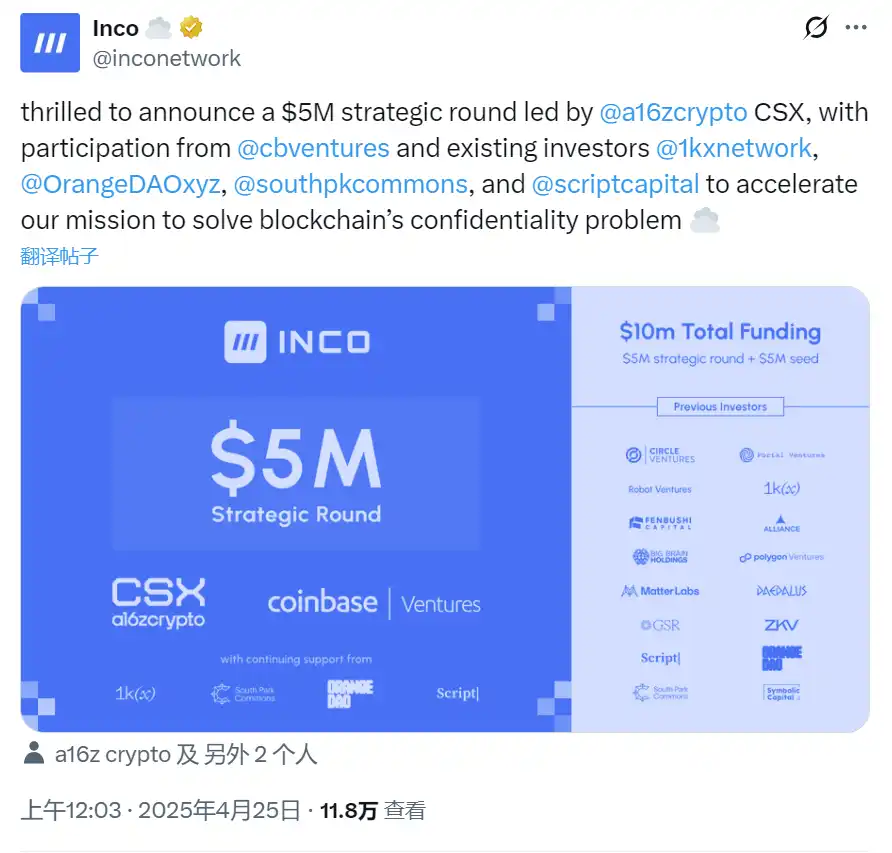
Inco 所处的隐私赛道从零知识证明(ZKP)、安全多方计算(SMPC)到全同态加密(FHE),各种隐私计算技术正在不断涌现,各有优势。像 Aztec 更强调基于 ZKP 的隐私扩容,Zcash 则聚焦于加密货币层面的匿名交易,Secret Network 主打链上机密合约。
根据 DataIntelo 的报告,全球区块链隐私计算市场在 2023 年的规模已达到 12.5 亿美元,预计到 2032 年将增长至 137.5 亿美元,年复合增长率达到 30%。这一增长趋势背后,是各行各业对数据隐私与安全性日益增强的关注——无论是 DeFi 中对交易隐私的需求、链上治理中的机密投票,还是医疗与金融行业对敏感数据安全共享的刚性需求,都体现出「在不泄露数据前提下实现协作」的现实必要性。
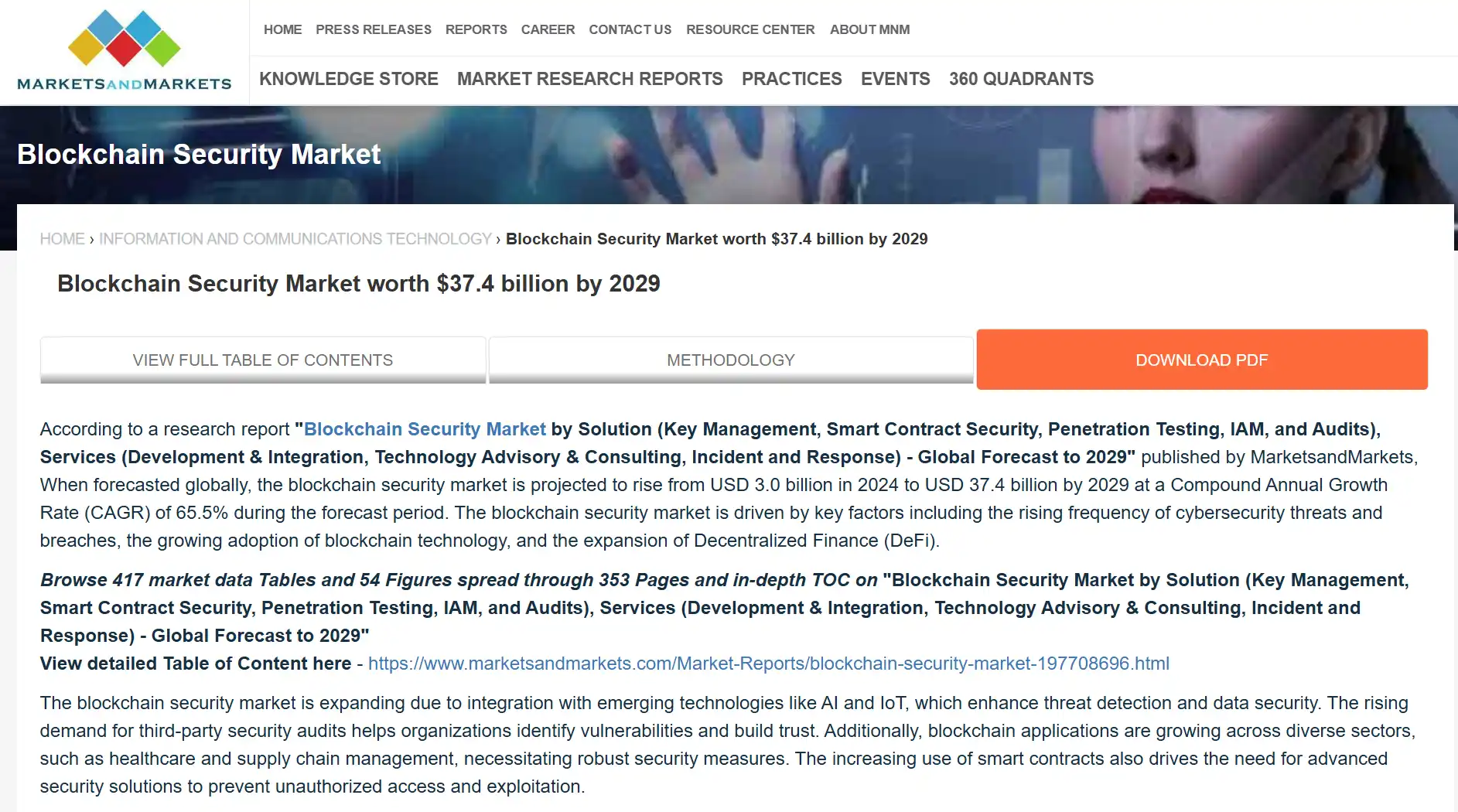
在这样的背景下,隐私计算已逐步成为 Web3 生态中不可或缺的基础设施。Messari、Delphi 等机构的研究也显示,隐私相关项目的融资在过去两年持续增长,涉及 FHE、ZKP、MPC 等多种技术路线,整个赛道的技术演进与生态布局正加速推进。
Inco 提供的不只是隐私,而是可能性
隐私从来不是一个简单的功能,而是一项基础设施。
Inco 是一个专注于隐私保护的 Web3 协议,兼容 EVM 的 Layer-1 区块链,通过全同态加密(FHE)技术,提供真正可用的隐私计算能力,相比依赖特定证明系统的方案,FHE 天然具备更强的「保密原生性」。
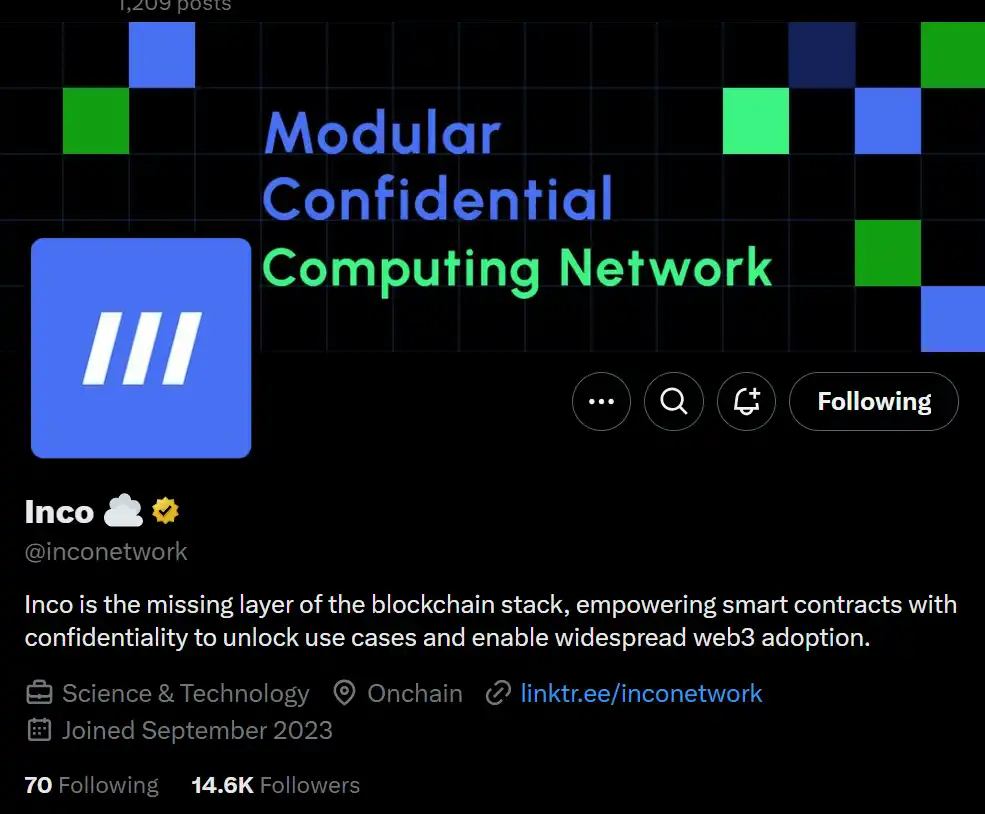
对开发者来说,这意味着可以在以太坊生态里轻松写出保密智能合约以及构建具备隐私原生属性的 dApp,例如私密交易、匿名身份验证、机密治理等场景,而且数据全程加密还能随便算。
资本加速与技术落地
Inco 于 2023 年成立,最初定位是为以太坊及其他网络的通用隐私解决方案,基于 FHE 技术打造保密层。2024 年 2 月,Inco 完成了 450 万美元的种子轮融资,由 1kx 领投,资金主要用于开发模块化的隐私计算 Layer-1 区块链。
随后,2025 年 4 月,Inco 再次完成了 500 万美元的战略融资,a16z crypto CSX 和 Coinbase Ventures 等知名机构参投,总融资额达到 950 万美元。投资方既涵盖 a16z、Coinbase 这类头部 VC,也包括 Orange DAO、SPC 等社区和技术导向力量。
同年 4 月,Inco 推出了两款技术,Inco Lightning 和 Inco Atlas。
Inco Lightning 利用可信执行环境(TEE)提供超低延迟的保密计算,已经在 Base Sepolia 测试网跑起来了,非常适合实时 DeFi 交易和链上游戏这种速度为王的场景。
而 Inco Atlas 则更注重隐私,结合了全同态加密和多方计算,专为金融、医疗这些超高隐私需求的行业打造,正在持续开发中。简而言之,Lightning 和 Atlas 分别是「快」和「稳」的代表。
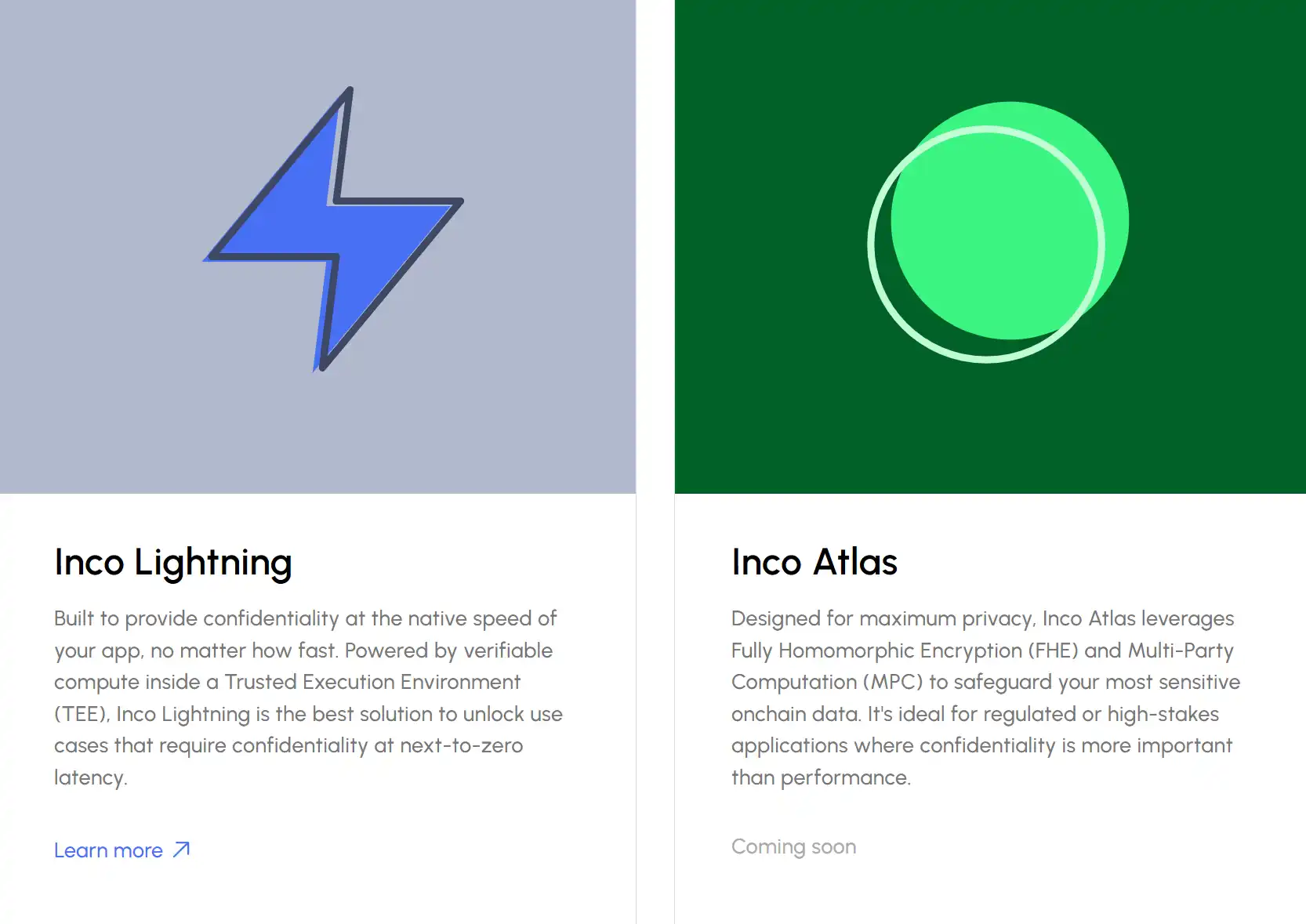
再看 Inco 创始人团队,官网公布的信息较少。Yakov Shalev 是 Inco 的联合创始人兼核心领导者,此前曾是去中心化云计算平台 Edge(原 Edge Network)的联合创始人。
尽管 Inco 团队的成员信息不多,但团队能在短时间内推出主网并顺利运行 fhEVM,也可以展示其强大的工程执行力。
产品可用性及用户体验
不仅主网也顺利上线 fhEVM(FHE + EVM)框架投入使用,Inco 的机密代币标准 也已推出,支持创建隐私代币。此外,Inco 提供开发者工具和文档,支持在以太坊生态中构建 dapps。
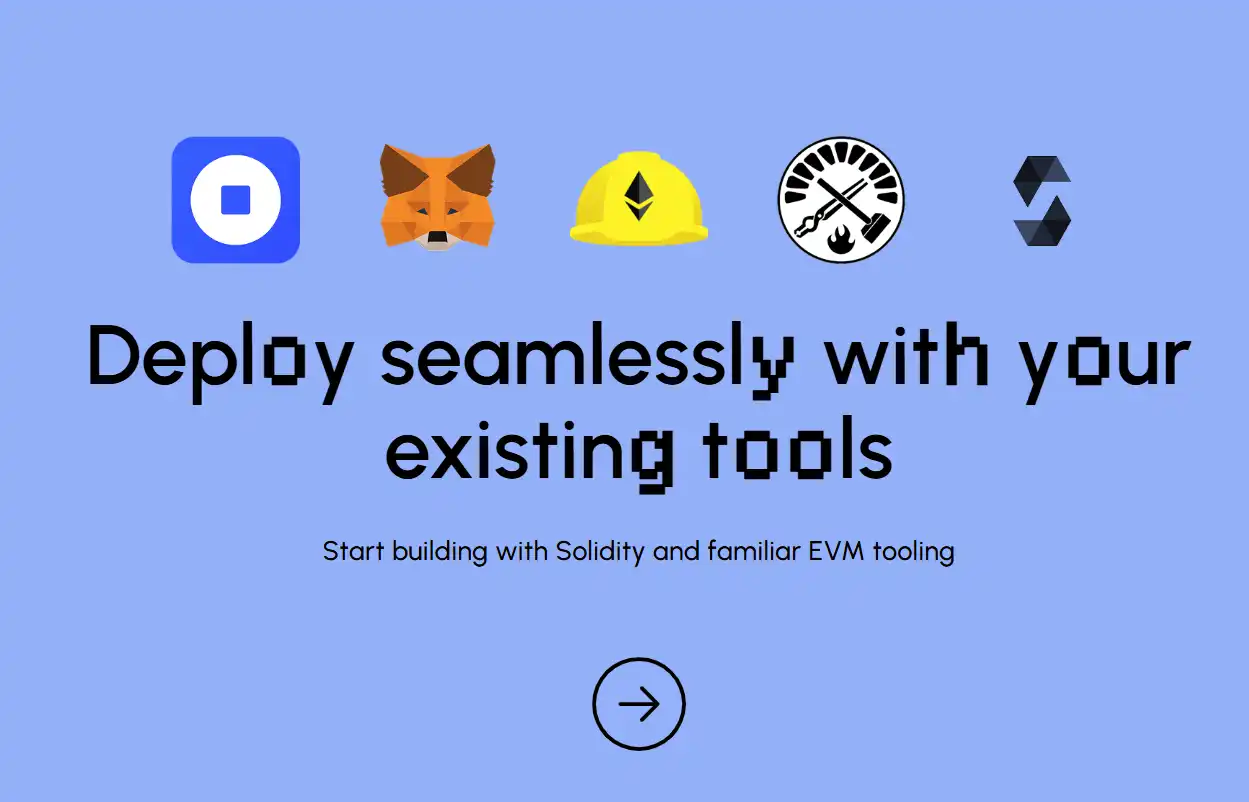
开发者可以通过 Inco 的 SDK 或 API 接入 fhEVM,编写支持加密数据计算的智能合约。具体步骤包括:
1. 在 Inco 主网上部署智能合约,使用兼容 EVM 的工具(如 Hardhat 或 Remix)。
2. 利用 Inco 的 FHE 库实现数据加密和隐私计算。
3. 通过 Inco 的机密代币标准创建隐私代币,集成到 dapps 中。
最终用户(如 DeFi 或投票应用的参与者)通过支持 Inco 的 dapps 间接体验其隐私功能,无需直接与底层技术交互。
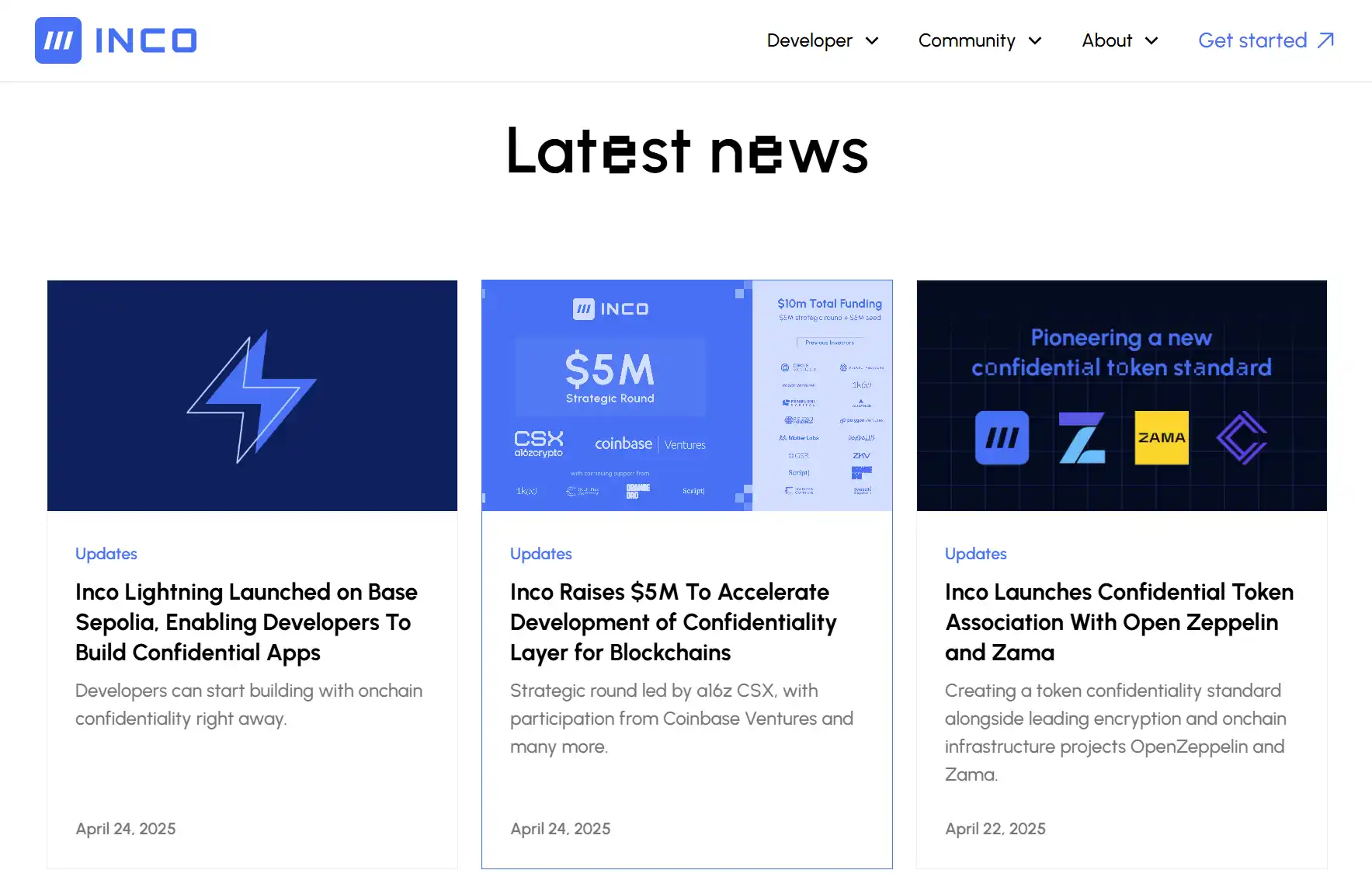
具体的用户数据(如 dapp 数量或用户规模)目前尚未公开。关于用户体验,基于 Inco 的 EVM 兼容性,开发者能体验到与以太坊类似的开发流程,轻松上手。虽然 FHE 的计算复杂性可能带来一些延迟,但 Inco 的优化设计尽量减少了这一影响。
对于最终用户,Inco 的隐私功能能提供顺畅的私密交易和数据交互,具体体验会根据 dapp 的前端设计而有所不同。总体来说,社区活动也很频繁,他们的贡献也让这一切更加顺畅。
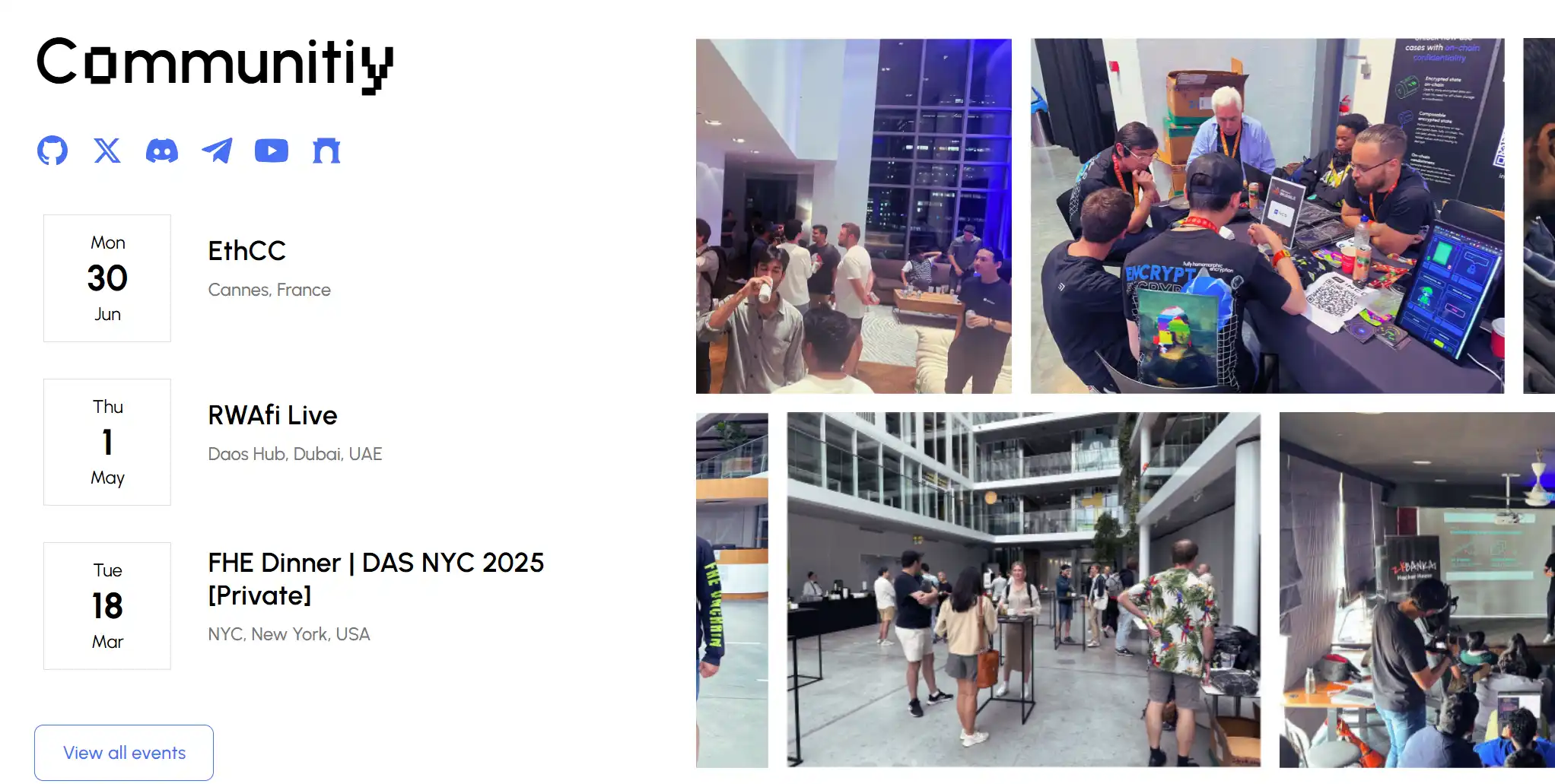
由于 Inco 目前还处于起步阶段,用户反馈主要来自测试网和一些初期的 dapp,全面的用户体验数据像是「未出炉的面包」,还需时间来酝酿。
不过,从现有的反馈来看,Inco 的隐私保护功能已经表现出了不小的潜力,开发者的评价也相当不错。随着更多 dapp 上线,用户体验就会越来越顺滑。随着隐私保护需求日益增加,Inco 在 Web3 隐私赛道的定位也愈加显著,值得持续关注。
免责声明:本文章仅代表作者个人观点,不代表本平台的立场和观点。本文章仅供信息分享,不构成对任何人的任何投资建议。用户与作者之间的任何争议,与本平台无关。如网页中刊载的文章或图片涉及侵权,请提供相关的权利证明和身份证明发送邮件到support@aicoin.com,本平台相关工作人员将会进行核查。




